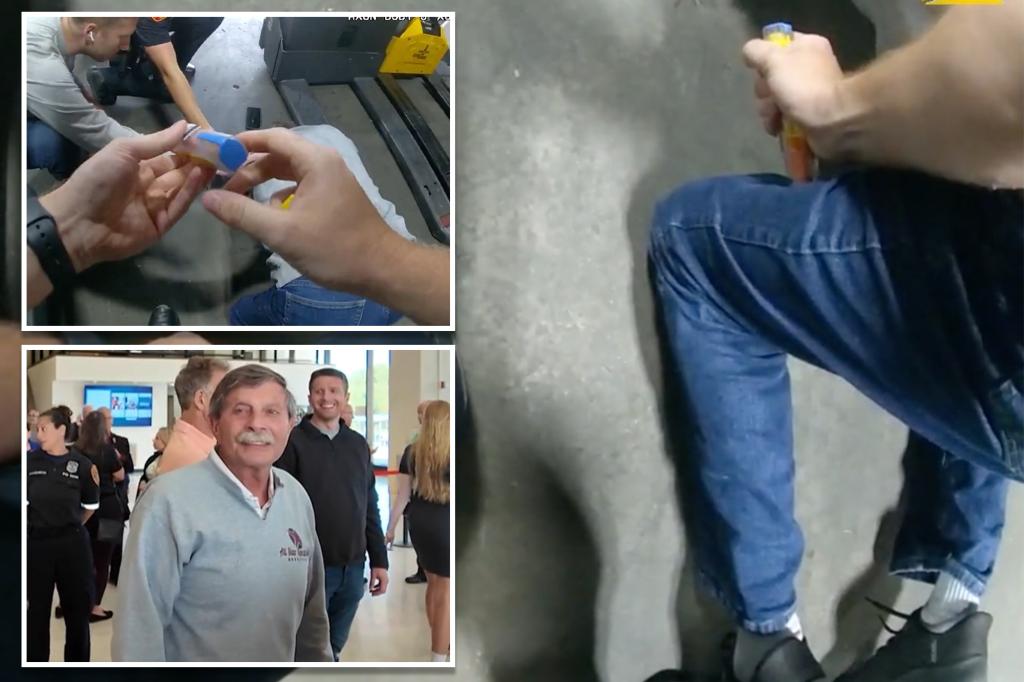Suffolk County police saved the life of a 72-year-old bee-sting victim suffering a life-threatening allergic shock — just two days after cop cars were equipped with EpiPens, officials said Tuesday.
Greg Kronrad was working outside his Wyandanch auto-parts business Sunday when a bee sting sent him spiraling into anaphylactic shock, with officers arriving just in time to administer an EpiPen.
“We probably wouldn’t be talking right now if I had to wait for the paramedics or if I had gotten stung three days prior,” Kronrad told The Post.
He is now the first person treated under a new Suffolk program that outfitted its first five batches of cars just two days before he was stung.
Kronrad collapsed inside his shop and spent nearly 15 minutes struggling and dazed before dialing his son Kevin, who called 911.
The officers, who were recognized for their life-saving actions, arrived on scene and said they found Kronrad on the floor, barely able to breathe before jumping into action and hitting him with two rounds of epinephrine.
“This is what happens when the government works as intended,” State Sen. Dean Murray (R) said.
New York State passed a law called Gio’s Law in 2019 for EpiPens in police cars, but Suffolk was originally excluded. In 2023, the state gave Suffolk and other municipalities with populations over 1 million the option to opt into programs.
Suffolk is the first county to opt in to the program. New York City has its own EpiPen program.
Nassau and Westchester counties both were left out of the original 2019 passage of New York’s Gio’s Law alongside Suffolk because of technical language that was originally intended only to exclude New York City — which already has their own EpiPen program in place.
Activists and lawmakers are now urging Nassau and Westchester to follow Suffolk’s lead and implement the “common-sense” initiative, pointing to Kronrad’s survival as undeniable proof that the model works.
“Three days after deployment, a man’s life was saved — that’s all the proof you need,” Legislator Dominick Thorne, who sponsored Suffolk’s law, told The Post.
Read the full article here

